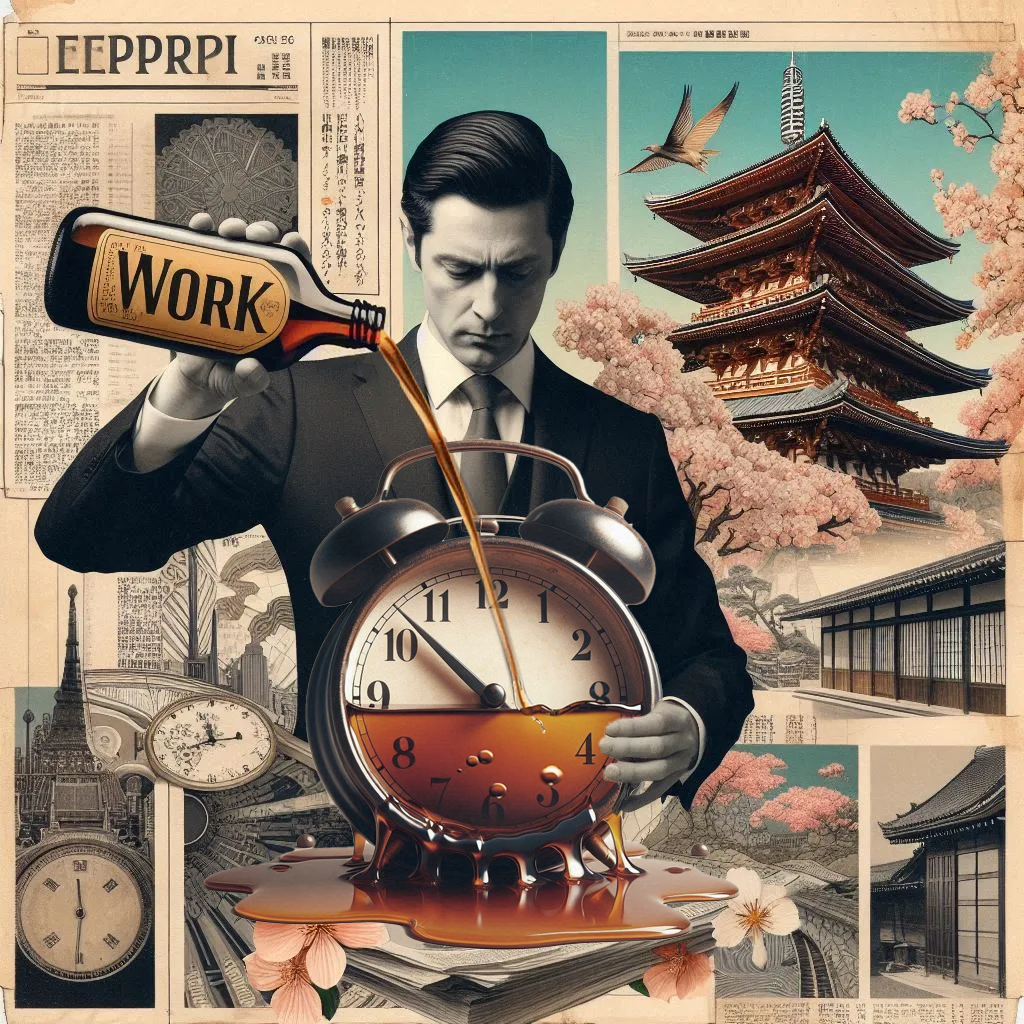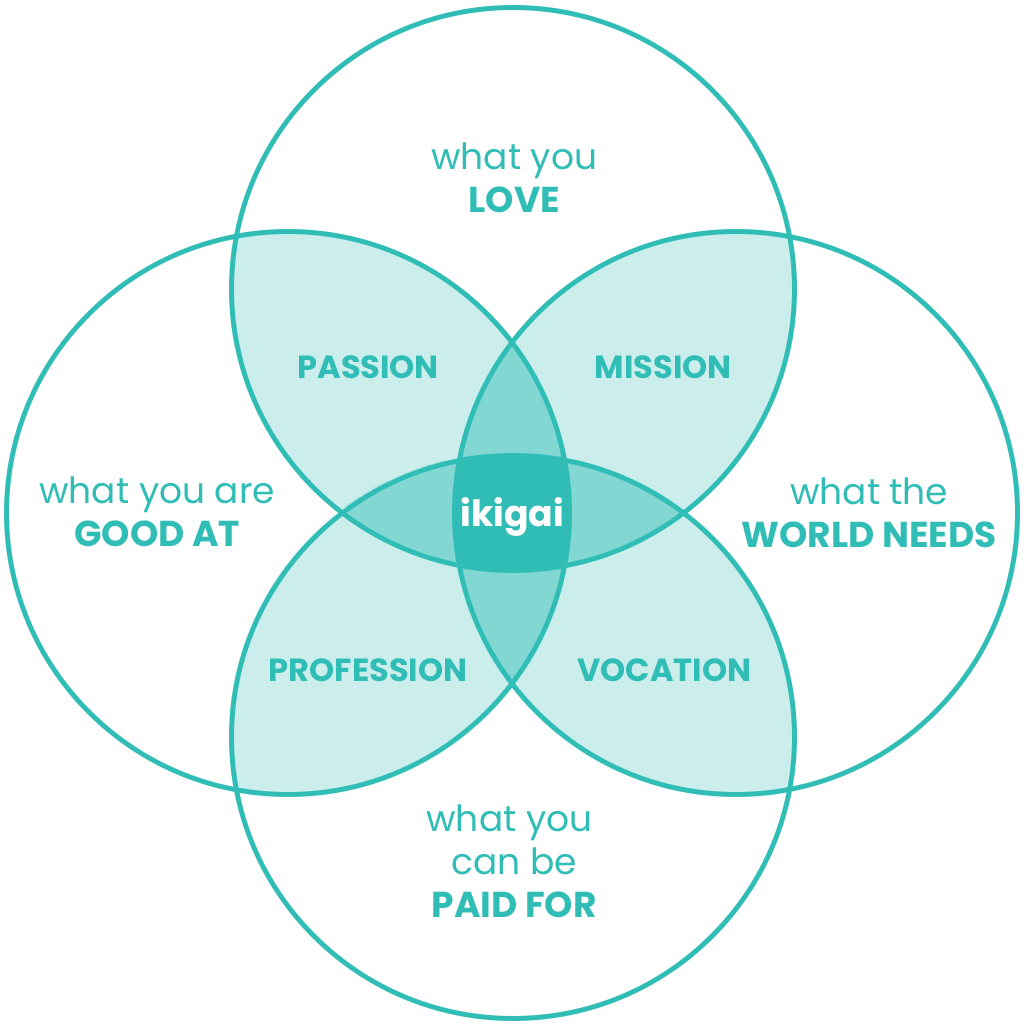Creative takeaways from the coolest things I’ve found this week.

Hey Friends! It takes 24 hours per 4-5 pounds to defrost a turkey. If you’re planning to cook a 30 pounder, stop what you’re doing right now (question your life decisions), and get that thing out of the freezer!
Ikigai
For the past 8 years, the founder of Cameo, Steven Galanis, has joined my entrepreneurship class to speak to my students, share the story of starting his company, and offer advice to entrepreneurially inclined young people.
How cool is that?
When asked about finding a business idea to pursue, he shared the Japanese concept of Ikigai—finding one’s reason for being, where passion, mission, vocation, and profession intersect to create a fulfilling life.
To figure out what is your ikigai, there are four questions to ask:
What are you good at?
What do you love?
What does the world need?
What can you be paid for?

I wish I’d had this framework when I was younger. It’s impossible to know what direction it would have led me, but I feel like I would have gotten there faster and with more confidence knowing my decision making was rooted in an ancient philosophy on living meaningfully and healthily.
Takeaway: By following the tenets of ikigai, you may increase the likelihood of building both a career and fulfilling life.
Additive vs Subtractive Habits
In a podcast with Dr. Peter Attia, he discussed the difference between additive and subtractive habits as it relates to habit formation.
Here’s why this matters: as a creative, I rarely have enough time to accomplish ALL that I’d like to. This means something usually gets deprioritized. For me, it’s usually health related. I’m a glutton for snacks, and sitting on the couch is much easier than jogging.
It’s easy to say to yourself, “Stop eating junk food,” but it’s much harder to actually implement such a change.
What I’ve found actually is easy, is to eat more. Since mid-September, I’ve added a simple whey protein shake to my morning routine. It’s super easy, gives me a good base of fuel to make it through the first part of the day, and allows me to start with a win.
By adding this habit to my routine, the downstream effects have led to less needless snacking, better decision making throughout the day, and a desire to stack better decisions on top of this already good one—like exercising.
I’m currently down 11 pounds, and feeling stronger than I have in years.
Takeaway: while it’s sometimes true that less is more, the opposite of this principle can hold true as well: sometimes more is less.
Parkinson’s Law
Parkinson’s Law states that work expands to fill the time available for its completion. If you’ve ever completed, or assigned, a group project in school, you know this to be true. Give a project two weeks, and it will take every last minute of those two weeks to complete.
In my creative media classes, I set two deadlines: the stated deadline and the actual deadline—a hidden extra day that I know my students will need to finish their work. Interestingly, if I made the stated deadline the actual deadline, they would still need an extra day. Sometimes work expands even beyond the time allotted.
Placing aggressive deadlines on assignments as a teacher, or on goals in life, puts a forcing function on completion that’s absent when not time-bound.
But here’s the thing: even if you fall short, you’re just as well off having completed only 50% of your list, so long as that list was twice as long as it otherwise would have been. The likelihood of accomplishing above 50% of your list is pretty darn high though—so you’re likely to achieve a net gain.
Takeaway: When you’re ambitious, “failure” still puts you ahead of most.
Hell Yeah, or No
If you received a life-changing sum of money, freeing you from ever having to work again, what would you do?
This was exactly the question Derek Sivers faced when he sold his company CD Baby, in 2008 for $22 million dollars. Since then, he’s focused on what matters most to him: writing and raising his family.
To escape the paradox of choice that comes with having all of the money you could ever want AND no professional responsibilities (a problem a yearn for), Sivers devised a simple filter for his decisions. If he didn’t respond, “Hell yeah, I want to do that!” Then the answer was automatically, “No.”
I’ve borrowed this device in my own life—especially when faced with important decisions. Earlier in my career, I felt a pressure to apply for an administrative role as I believe was what I was “supposed to do.” It wasn’t a “hell yeah” though, so it became a “no.” That freed me to be present as a new father and to double down on my role as a classroom teacher.
Sometimes my hell yeses have stripped me of my “me time,” giving me less opportunity for my creative pursuits: children, for example, take almost all of your time—fortunately, they’re worth it.
It has been my lukewarm yeses that I’ve turned into nos that have allowed me to carve out time for the things that I’d like to prioritize.
Takeaway: when you say yes to one thing, you are inherently saying no to something else. When you say no, you make room for more hell yes.
For more from Sivers check out: Hell Yeah or No: What’s Worth Doing by Derek Sivers
Want Some More?
recently interviewed me for his Substack: Writers are Weird. His about page states that his publication is “dedicated to exploring the unique habits, perspectives, quirks, and routines of famous novelists, painters, poets, philosophers, and filmmakers.”
While I am none of those things, it was an honor to be featured on his platform.
If you’d like to know:
How I find time to write
What habits or rituals I employ when writing
What influences my work
And more
Have yourself a read here: Michael Macfadden’s Approach to Teaching, Parenting, and Writing